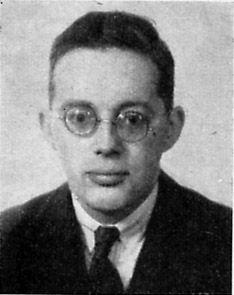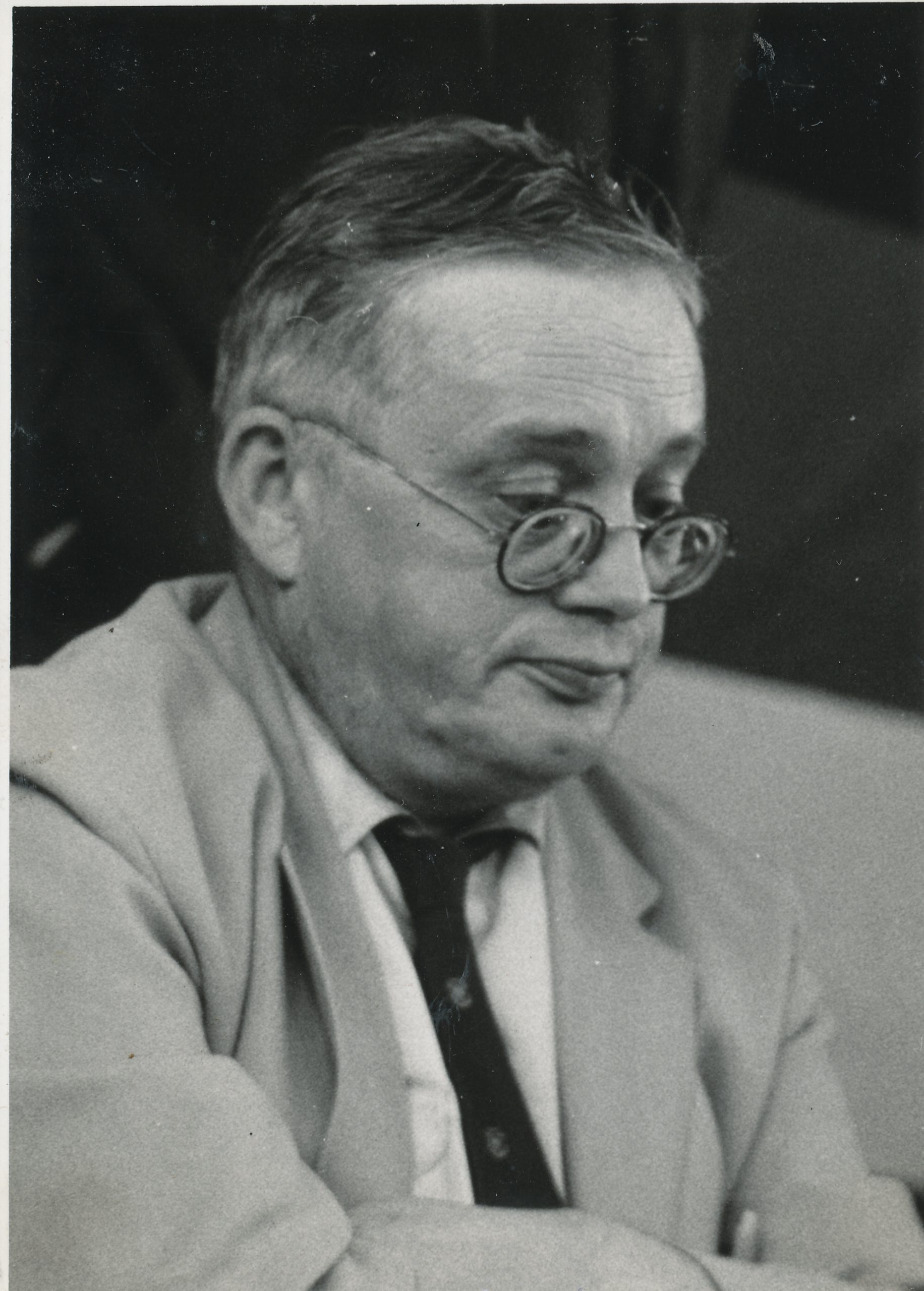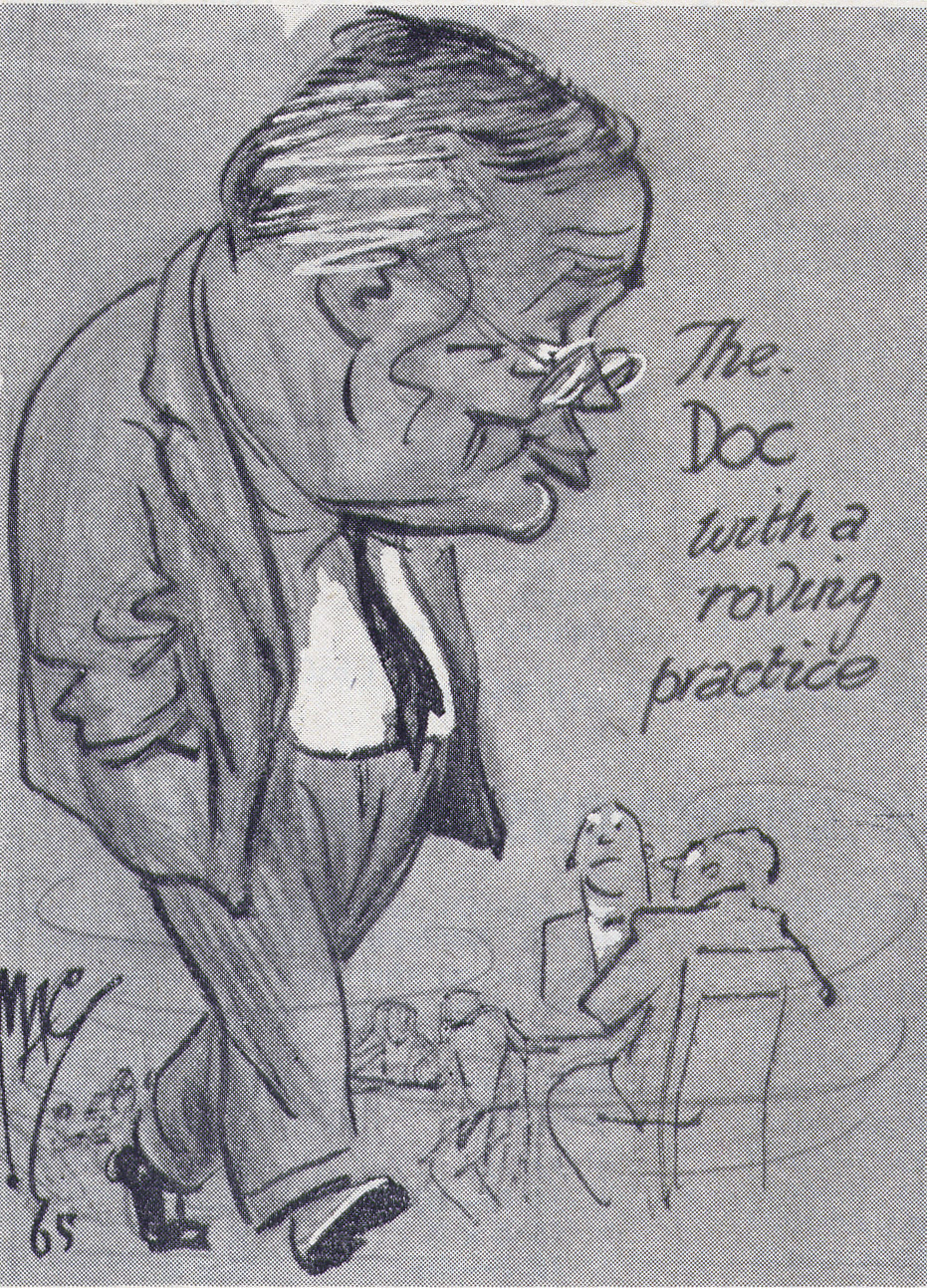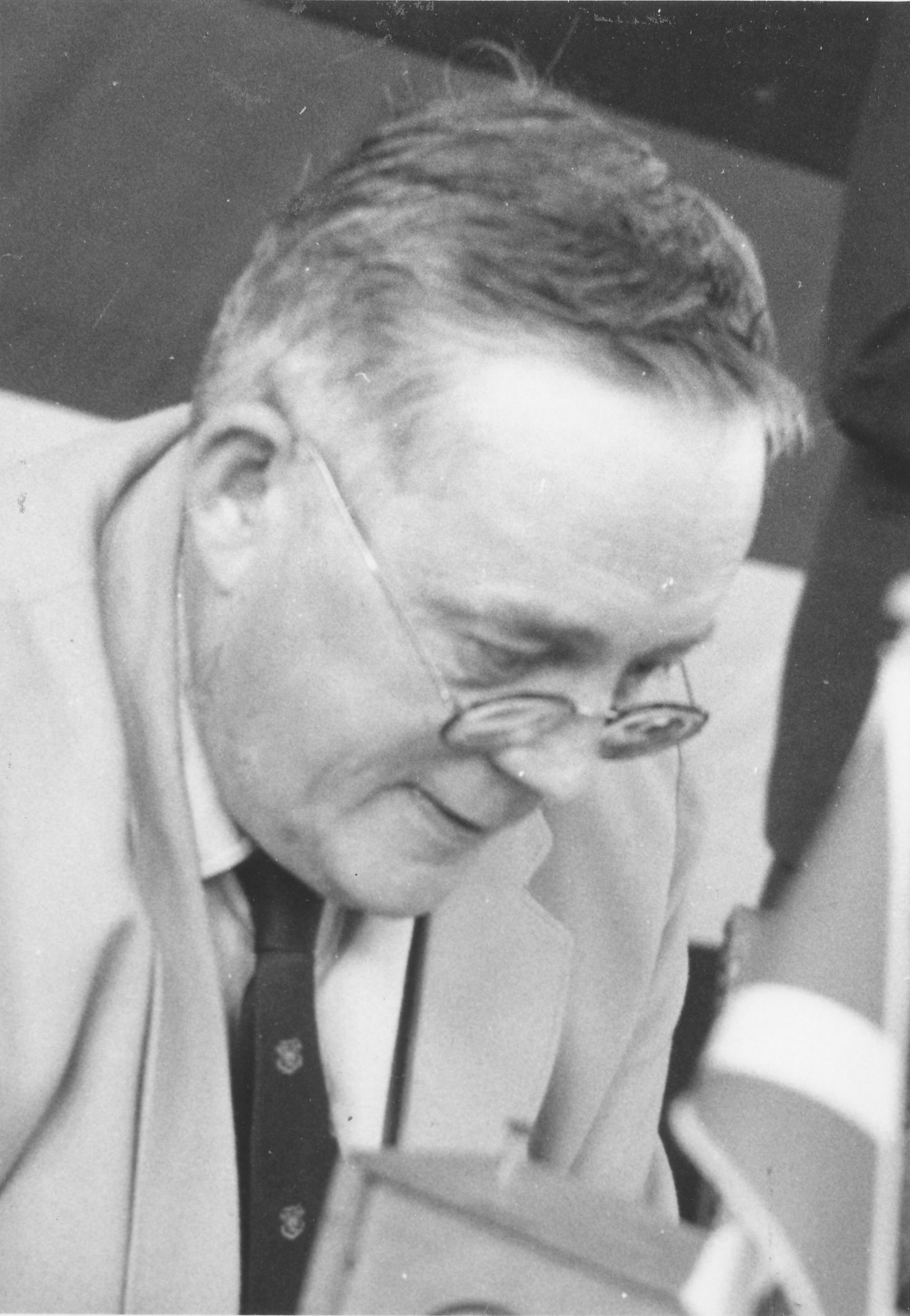
- This event has passed.
Death Anniversary of Dr. James Aitken (27-x-1908 03-xii-1983)
December 3, 2020


We remember Dr. James Aitken who passed away on Saturday, December 3rd, 1983.
James Macrae Aitken was born on Tuesday, October 28th 1908 in Calderbank, Lanarkshire, Scotland.
His very early history is best record here at the wonderful Chess Scotland web site.
He attended Balliol College, Oxford.
Luckily for all of us Scottish chess enthusiast Geoff Chandler is transcribing JMAs games from the players personal scorebooks. We hope to see these games appearing in Britbase and other locations in the near future.
From The Anglo-Soviet Radio Chess Match by Klein and Winter :
“JM Aitken was born in 1908 in Scotland, and learned chess at the age of eight. He played several times in the Scottish Championship, and won it in 1935. In the Stockholm international team tournament, 1937, he played for Scotland. His best performance in international chess was at Hastings, 1945, when he scored 6 points and did best among the British contingent.

He is a graduate of both Oxford and Edinburgh, and a Ph.D. At the beginning of the war he joined the Foreign Office. ”
The Aitken Variation is a line recommended in the British Chess Magazine of 1937 of the Giuocco Piano as follows :
From British Chess Magazine, Volume CIV (104, 1984), Number 1 (January), page 65 :
“Dr. James Macrae Aiken (27 October 1908 – 3 December 1983) died at his home in Cheltenham on the Saturday morning when he was due to turn out in a county match that afternoon. Sh he was active to the end, since he played in the veterans’ competition in both at the Southport BCF Congress and at the Guernsey tournament in October.
Ten times Scottish Champion, the worthy doctor represented Scotland at Olympiads both pre- and post-war. At the 1937 Stockholm Olympiad he beat Ståhlberg, while later on he also had the grandmaster scalps of Bogoljubow and Tartakower to his credit.
He retired from his work at the Foreign Office some ten years ago, and continued playing in West Country chess, always taking a high board for Gloucestershire. At the BCM we have a particular cause to remember him with gratitude since he was both a book reviewer and occasional annotator for two decades, and a life-long subscriber.
As a person he was always friendly and objective in his judgements both of chess positions and personalities. Your editor recalls many interesting conversations with him at BCF Congresses. The loss is greatest, of course. for Scottish Chess.
Perhaps we may close on a lighter note, since the following anecdote reminds one that Dr Aitken also turned out for Great Britain in matches just after the war. At an early FIDE Congress after the war the first official FIDE list of masters and grandmasters was being drawn up. The BCF made application for recognising the mastership of HE Atkins. The Soviet delegate, Kotov, objected since he thought he heard the name of Aitken, whom he knew had lost both games to Bondaresvky on board eight of the 1946 GB-USSR Radio Match. It was gently pointed out that the application concerned a player who had come ahead of no less than Chigorin at Hannover 1902. End of objection!

We take this game from the Bournemouth tournament played on the eve of the Second World War.
From The Encyclopedia of Chess (Batsford, 1977), Harry Golombek OBE :
“Talented Scottish amateur who won the Scottish championship ten times, Dr. Aitken’s chief international activity was representing Scotland in the Olympiads.
At Stockholm 1937 he scored 32.4% on top board but he had the distinction of beating the Swedish grandmaster Ståhlberg. At Munich 1958 he scored 67.6% on 2nd board; at Tel Aviv 1964, 28.1% on 2nd board; at Skopje 1972, 38.9% on 6th board.”
Both Sunnucks and Hooper & Whyld are silent on Aitken.
From Wikipedia :
“James Macrae Aitken (27 October 1908 – 3 December 1983) was a Scottish chess player.[1][2] Aitken was born in Calderbank, Lanarkshire, Scotland. In 1938 he received a PhD from Edinburgh University on the topic of ‘The Trial of George Buchanan Before the Lisbon Inquisition’.[3]
Aitken learned chess from his father at age 10.[4] He was Scottish champion in 1935, 1952, 1953, 1955, 1956, 1957, 1958, 1960, 1961 and 1965, the latter jointly with PM Jamieson.[1] He was also London Champion in 1950.[1] In 1959 he had his best result in the British Championship, finishing tied for seventh place.[4] Aitken represented Scotland in four Chess Olympiads. He played top board at Stockholm 1937, scoring only 32.4% but he did defeat Swedish GM Gideon Ståhlberg[4][5] and draw with American GM Samuel Reshevsky.[4] He played second board at Munich 1958 and Tel Aviv 1964, scoring 67.6% and 28.1% respectively. Aitken played sixth board at Skopje 1972, scoring 38.9%.”
Aitken was Southern Counties (SCCU) Champion for the 1948-49 season
“Aitken represented Great Britain in matches against the USSR and Yugoslavia.[4] In the 1946 radio match between the United Kingdom and the USSR he lost his match with Igor Bondarevsky on board 8.[6] Aitken defeated GM Savielly Tartakower at Southsea 1949[4][7] and GM Efim Bogoljubow at Bad Pyrmont 1951.[4][8]
During World War II, Aitken worked in Hut 6 at Bletchley Park on solving German Enigma machines.[9] On 2 December 1944 Bletchley Park played a 12-board team match against the Oxford University Chess Club. Bletchley Park won the match 8–4 with C.H.O’D. Alexander, Harry Golombek, and Aitken on the top three boards.[10] Aitken wrote many book reviews for the British Chess Magazine.[11] Aside from chess his hobbies included golf, philately, bridge, and watching cricket.[4] He died in Cheltenham in 1983, aged 75.[2]”
Another biography may be found here at the wonderful Chess Scotland

